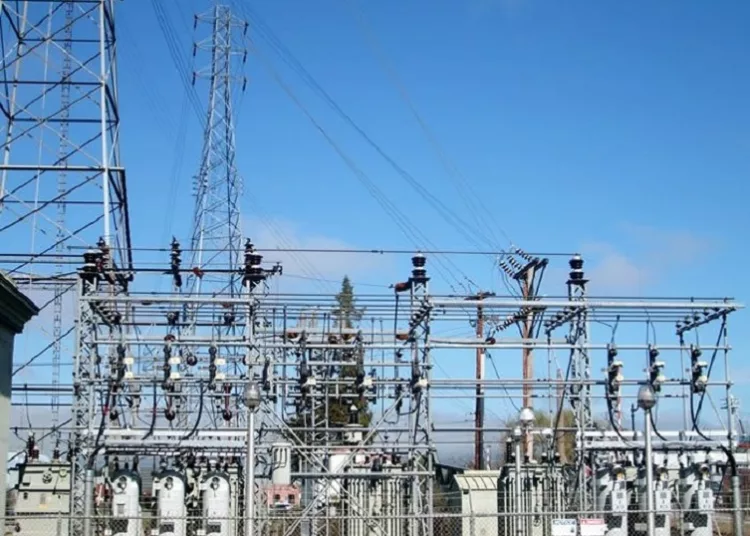Business and social activities have been grounded in northern states affected by the six-day-old blackout which began with the collapse of the national grid last week.
As the outage lingers, the cost of living in the states has shot up as businesses relying on generating sets to run their operations have increased their charges.
Small and medium scale business owners told LEADERSHIP Sunday that they had to increase the prices of the goods and services to cover their costs.
However, large businesses which are still watching the trend have yet to raise the prices of their products and services.
They, however, lamented that the situation had taken a serious toll on their operations, which had been on the edge since the federal government removed fuel subsidies and hiked electricity tariffs.
The blackout began last Monday when the 330KV circuit transmission lines between Makurdi in Benue and Enugu States tripped off.
In Jigawa State, the secretary of the Nigeria Association of Small and Medium Enterprises (NASME), Comrade Danlami Shuaibu, lamented the critical condition his members found themselves in due to the blackout.
He said almost 98 per cent of SMEs in the state had been closed because of the blackout while production on generating sets was not feasible and profitable.
He said, “I just came out from a bakery in Dutse, the state capital; the owner decided to close it because of the blackout. He told me he couldn’t afford to operate on petrol or diesel.
“The bakery owner also lamented the sharp drop in sales for the past 20 months due to government economic policies which led to unprecedented inflation in the country.
“Virtually all the dairy companies and their sales outlets have closed across the state. Based on our records so far, over 98 per cent of our members are temporarily out of business, and it seems no serious efforts were being made by authorities to restore the power soon. This is very unfortunate and alarming.”
He described the situation as a serious setback in promoting investment in the northern region in particular and the country in general.
“Who will borrow money again to invest when there is no guarantee for power supply, no guarantee for economic stability, no security and all other basics of an enabling environment? Government must wake up and rescue the situation before it becomes too late,” he warned.
A resident, Salisu Sani, who produces doors, windows and other related office and house furniture, said the blackout forced them to cut his production hours.
“Before the blackout, we worked for five to six hours on a generating set and five to six hours on the national grid. We can’t afford to expand our operations on a generating set, so we are managing on our initial plan,” he said.
Salisu Labaran, a civil servant with the Jigawa State government said the blackout had increased his domestic spending amid the current inflation and other economic challenges.
In Plateau State, the Jos Electricity Distribution Company appealed to members of the public to safeguard all electrical installations within their areas to avert the risk of vandalism of the critical assets.
The company’s head of corporate communications, Dr Elijah Adakole, in a statement issued in Jos, said the appeal was informed by some unscrupulous elements’ plan to take advantage of the blackout to cripple their business/operations and residents in a perpetual blackout.
Meanwhile, operators of grinding machines in Jos/ Bukuru metropolis have lamented their inability to feed their families as a result of the current blackout.
One of the operators, Ajayi David, told our correspondent that he had been out of business because he could not use his electricity-driven grinding machines.
Another grinding machine operator, who simply identified himself as Tobi, said he had increased his charges by 300 per cent due to the power crisis.
For those in the hospitality industry, the story was the same. A hotel manager, Benson Ameh, said they were no longer operating at full capacity because of lack of electricity, noting that they only switched on their generating set from 6pm to 12 midnight.
In Gombe State, the electricity crisis has also severely impacted on businesses and residents. Some restaurants have suspended operations due to the high cost of fuelling their generating sets.
The outage has also exacerbated the water scarcity in the state as residents rely on vendors for potable water, but the suppliers face increased challenges.
A water vendor, Umar Audu, said filling a small tank now costs N7,000, up from N4,000, due to the difficulty in sourcing water.
The construction sector is also affected. A builder said his Plaster of Paris (POP) project had been stalled for three days due to the unavailability of water from vendors.
“Essential materials are on the site, but water scarcity hindered progress. This delay is not only idling the workers but also disrupting project timelines and client satisfaction,” he lamented.
Similarly, residents of Katsina State are contending with outages and the accompanying water scarcity.
The three-week disruption in water supply from the state’s water board had left many families scrambling for alternatives leading to a steep increase in water rates.
A housewife, Fatima Saibu, said, “A jerry can of water that used to cost N50 now sells for N200, and a bag of sachet water, commonly known as pure water, goes for N300.”
Households and small businesses in Bauchi State are also reeling under the blackout which has strained livelihoods and pushed businesses to the brink.
In the bustling Wunti market area, a barber, Ibrahim Danjuma said, “I rely on electricity to earn my daily bread. Now I spend more on fuel than I make in a day.”
The once-busy hum of clippers has gone silent in several barbershops, with many opting to close temporarily rather than operating at a loss.
At home, the story is not better. A mother of four, Amina Bala, said she now buys ice blocks to preserve food. “It’s hard. Now, food spoils fast, and we spend even more to keep it fresh,” she lamented.
Retailers and artisans are among the hardest-hit. Tailors, welders and phone repairers rely on a stable power supply. Without it, they’ve had to halt production or depend on fuel-powered generators, which eat into profits. Customers, too, are impacted by delayed services and increased prices.
The lack of electricity, that is running into weeks now, has caused a number of businesses to fold up because even the generating sets could not sustain their businesses because of the high cost of fuel.
Madam Ngozi, who sells local drinks such as “zobo” and “kunu”, said she had packed up her business which has adversely affected her family.
Gwarzo Abdullahi Seeks Tinubu’s Intervention
Meanwhile, a fellow of the Nigerian Society of Engineers (NSE), Bello Gwarzo Abdullahi, has appealed to President Bola to intervene in the power system dilemma in the North.
In a statement titled, “Northern Nigeria and The Power System Dilemma: An Appeal To President Bola Tinubu for Immediate Intervention”, Engr Abdullahi called for the construction of a 330kV Double Circuit line from Apir to Jalingo and another 330kV line from Kano to Damaturu to expand the reach of the power network to provide more communities with access to stable electricity.
In the long-term, he called for the establishment of 330kV lines from the newly constructed 700mw Hydro Station at Zungeru to Tegina, extending to Mando and Birnin Kebbi through Birnin Gwari and Yauri.
Abdullahi said this would significantly enhance the power network’s capacity and reliability. He added that implementing a 330kV line to Katsina through Birnin Kebbi, Sokoto and Talatan Mafara would further strengthen the network, ensuring a more robust and interconnected system.
According to him, resolving tower collapse issues in Maiduguri, Borno State attributed to banditry, by supplementing the existing gas power station with solar facilities might improve reliability and promote sustainable energy.
These initiatives, once executed, he said would undoubtedly enhance power supply across the northern region, ensuring reliability, quality and security through effective maintenance practices that prioritise the welfare of personnel via adequate remuneration, career advancement opportunities and continuous training.
He emphasized that these were achievable with a well-coordinated response by all key stakeholders, bearing in mind that electricity is the pivot of development.
Abdullahi, therefore, charged governors, members of the national and state assemblies, retired bureaucrats and technocrats and members of the business community to prevail on the president to do the needful by declaring a state of emergency on power in order to salvage the situation.
There is no gainsaying that the north has been almost grounded in the past few weeks as businesses have been seriously affected by the blackout.





